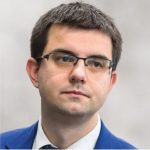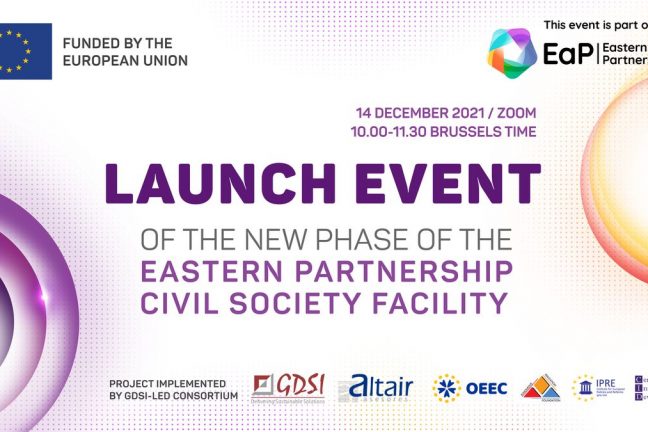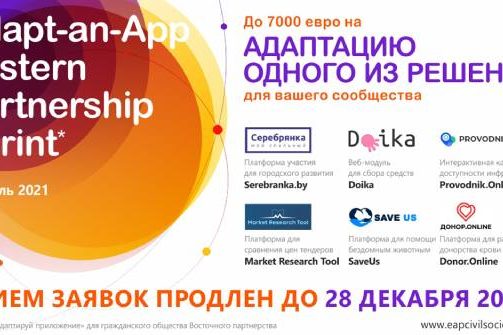We are happy to announce the call for applications for our new Online Course for Civil Society Organisations on Sectoral Accountability in the Energy Sector, developed and delivered in partnership with DiXi Group and the Kyiv School of Energy Policy. Apply by September 23, 2020: application form.
Who is the course for?
- Leaders, managers and other representatives of civil society organisations (CSOs), including any relevant trade unions or other sectoral associations, working on energy, climate change or environmental issues from the Eastern Partnership countries (Armenia, Azerbaijan, Belarus, Georgia, Moldova and Ukraine);
- Civil society activists from the Eastern Partnership countries involved in energy, climate change and environmental issues.
What will you achieve by taking the course?
- You will learn how to further strengthen your institutional capacity and sector expertise;
- You will better understand the energy sector, climate change and other relevant environmental issues from a national, regional, EU and international perspective;
- You will strengthen your skills for engaging in relevant policy dialogue, monitoring and advocating for positive changes;
- You will be able to better identify critical areas of intervention for positive policy changes in the sectors of energy and climate change;
- You will be able to share your own experience with your peers from other Eastern Partnership countries.
Our course will help you reach these goals by giving you access to:
- Engaging online modules;
- Interactive webinars with trainers and peers;
- Local expertise from the EaP countries and the EU;
- Real-life examples and case studies from the energy sector;
- Networking opportunities across the Eastern Partnership countries.
What will you learn about?
The course is divided into four different compulsory modules:
- Module 0: Understand Your Role
Module 0 will provide a detailed review of the ways in which the CSOs can improve their institutional capacity, sector expertise and ability to become a viable and influential part of policy dialogue as such.
- Module 1: Choose Your Instruments Wisely
Module 1 will explore the differences between consultations, advocacy and lobbying as the main instruments for championing positive changes in society, taking into account the specificities of the Eastern Partnership region. The module also contains a deep dive into the three dimensions of civic society engagement: dialogue with the government, with the private sector and with the national regulatory authorities – all including real-life examples and case studies.
- Module 2: Know the Energy Sector
Module 2 offers a rich and structured overview of the main pillars of the energy sector – policy, legislation, market design and sustainability issues. Module 2 will give you the basics for moving towards a clean and sustainable energy mix centred around the rights and interests of consumers and aimed at ensuring energy security and eliminating non-transparent and manipulative practices.
- Expert Webinars: Discover Real Examples from the EaP Region
Finally, Module 3 will provide a synthesis of all previous material within the framework of interactive webinars with practicing local experts from each of the Eastern Partnership countries. In addition to providing specific information on the national energy systems and situations, the webinars would allow participants to apply their newly acquired knowledge to identify the needs, opportunities and strategy for policy advocacy and dialogue within specific Eastern Partnership countries’ energy markets.
Who are the lecturers and tutors?
Our course brings together different experienced professionals from the region to share their knowledge and skills with you.

Olena Pavlenko PhD, is President of DiXi Group, Ukraine’s leading think tank in energy governance.
She has worked in the energy sector for over 17 years, dealing with issues of energy security and transparency, oil and gas market liberalisation, EU-Ukraine-Russian energy relations and hydrocarbon development.

Anton Antonenko is Vice President and Co-Founder of DiXi Group.
He received his M.A. degree in Political Science from the National University of Kyiv-Mohyla Academy (Ukraine).
He was responsible for managing and implementing numerous USD multimillion technical assistance projects.

Denys Nazarenko is the head of the Kyiv School of Energy Policy, an educational platform offering modern training and capacity building in energy policy, management and economics based in Kyiv, Ukraine.
He has a legal background and worked in the energy sector for the last 5 years.

Roman Nitsovych is the Research Director of DiXi Group.
Within the organisation, he coordinates research on the energy policy of Ukraine and the EU, the organization and conduct of advocacy campaigns.

Ana Otilia Nutu is a senior energy policy analyst and a founding member at EFOR, leading Romanian think tank and NGO in energy, and is working as a consultant for the World Bank on energy sector reforms.
She also initiated energy-related projects, advocated for market liberalization and is currently EU coordinator of the Eastern Partnership Civil Society Forum, WG3 – Energy and environment and a former member of the Steering Committee of the EaP CSF.

Alexandra Sabou is a Romanian and Belgian consultant with extensive experience in international cooperation, advocacy, and outreach, with a focus on the Eastern Partnership region.
Currently, she works as Statutory Affairs Manager at the Eastern Partnership Civil Society Forum (EaP CSF) in Brussels.

Hennadiy Riabtsev PhD, is a specialist in policy analysis and strategic planning, Doctor of Science in Public Administration, Candidate of Technical Sciences, Professor.
Works at the junction of management, economics and energy. His scientific research focuses on policy development, energy security, energy market research, hydrocarbon development, oil refining and fuel exploitation, including biological additives. He is the author of 18 books and 42 patents.

Anna Ackerman is a climate and energy policy expert and is board member at centre for environmental initiatives “Ecoaction”.
She is an experienced professional in the field of energy and environment with 5+ years of experience in NGO, energy design and research sectors in Eastern and Central Europe. Her main areas of expertise include energy efficiency in buildings, renewable energy, climate change and policy advocacy.

Olena Baida is an experienced public service expert in the sphere of energy efficiency, clean energy technologies and carbon pricing.
Most recently she held the position of Advisor to the Deputy Minister, Acting Director General of Energy and Resource Efficiency Directorate with the Ministry of Energy and Environmental Protection of Ukraine.
She was responsible for transposition of the acquis communautaire to Ukrainian legislation.
When is the course planned?
The course is planned to start on the 19th of October 2020 and will last until the 23rd of December 2020 (when final assignments will be due). The duration of the course is 10 weeks and the estimated weekly study time is around 4 hours for the core materials.
- The course will start on the 19th of October with an Introductory Webinar and the launch of Module 0: Understand Your Role.
- From the 26th of October to the 8th of November, Module 1: Choose Your Instruments Wisely will be available and participants will be expected to engage with the content.
- From the 9th of November to the 22nd of November, Module 2: Know the Energy Sector will be available and participants will be expected to engage with the content.
- Module 3 (Webinars): Discover Real Examples from the EaP Region will be organised in the form of interactive webinars with practicing local experts from each of the Eastern Partnership countries and will start on the 23rd of November and will last for 4 weeks.
- The end of the course and the deadline for submission of final assignments will be on the 23rd of December.
Please make sure that you are available for all these activities! Please note that the indicated dates may slightly change.
How can you apply?
To apply please fill in this registration form before the 23rd of September 2020. Participants will be selected based on their experience and motivation to participate in the course. Note: ONLY PRE-SELECTED PARTICIPANTS WILL BE NOTIFIED.
What else do you need to know?
Format
100% online:
- video lectures +
- webinars +
- practical cases +
- forum discussions.
Language
- Online modules will be available in both Russian and English.
- Webinars will be provided in English with Russian interpretation, if requested by participants.
Key dates & Duration
- Duration: 10 weeks.
- The estimated weekly study time: 4 hours for the core materials.
- 19 October 2020 – start of the course (Introductory Webinar and the launch of Module 0: Understand Your Role)/
- 26 October – 8 November 2020 – Module 1: Choose Your Instruments Wisely.
- 9-22 November 2020 – Module 2: Know the Energy Sector.
- 23 November – 20 December 2020 – Module 3 (Webinars): Discover Real Examples from the EaP Region
- 23 December 2020 – The end of the course and the deadline for submission of final assignments.
Please note that the indicated dates may slightly change.
Number of selected participants
We aim to have on board throughout the course around 60 active participants. A slightly higher number of participants may be pre-selected in order to ensure a sufficient number of active and engaged students.




Comment